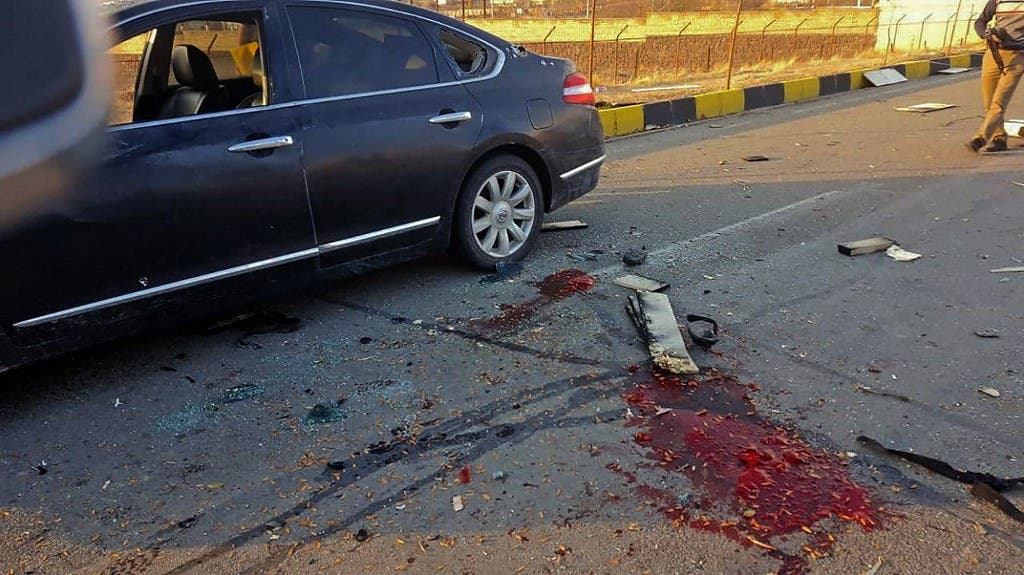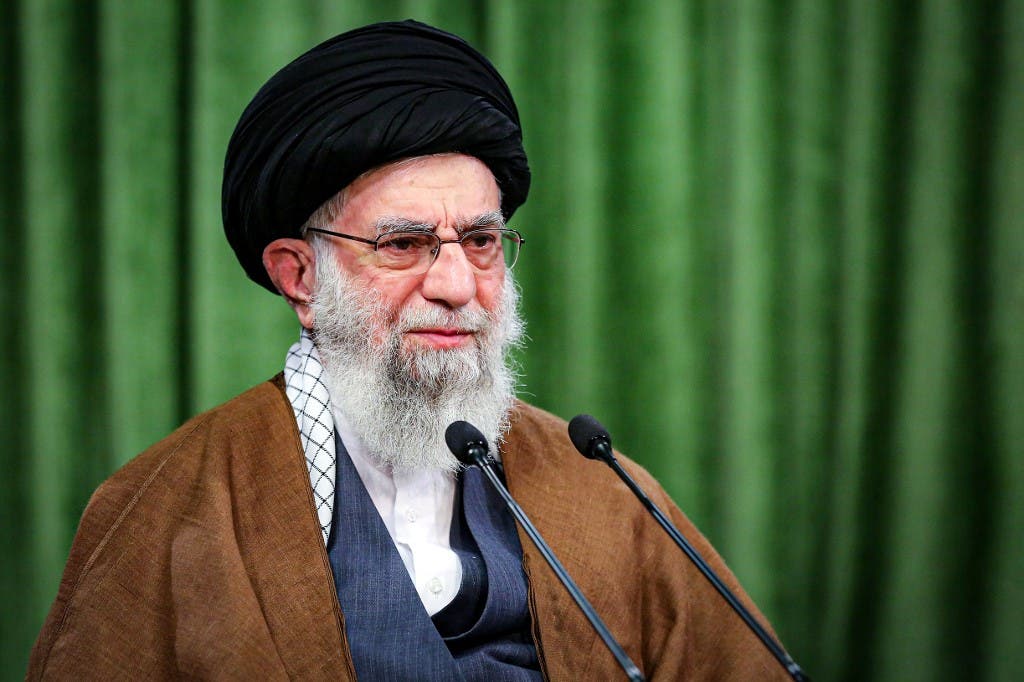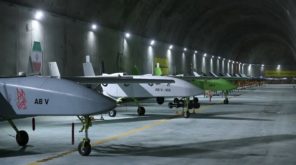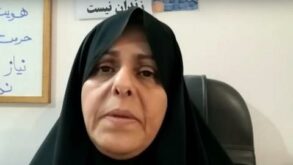Al-Arabia – Iran’s judiciary chief Ebrahim Raisi called on the country’s security services on Monday to crackdown on “infiltration networks” following the killing of a top Iranian military nuclear scientist.
“The intelligence and security services should not hesitate in identifying and destroying the infiltration networks throughout the country and those who conspire with the enemy from within,” the semi-official Mehr news agency quoted Raisi as saying.
Read more: Why is Iran threatening Israel’s Haifa? Experts explain
Mohsen Fakhrizadeh, believed by the West to have been the architect of a secret Iranian military nuclear program, was killed in an ambush near Tehran on Friday.

A handout photo made available by Iran state TV (IRIB) on November 27, 2020, shows the damaged car of Iranian nuclear scientist Mohsen Fakhrizadeh after it was attacked near the capital Tehran. (AFP)
Iranian officials have accused Israel of being behind Fakhrizadeh’s assassination and vowed retaliation. Israel has declined to comment on the killing.
Raisi, a powerful figure who is seen as a likely successor to Supreme Leader Ali Khamenei, called for the formation of a special judicial committee to prosecute the perpetrators.
Iranian rights activists have expressed concern that authorities could carry out arbitrary arrests.

A handout picture provided by the office of Iran’s Supreme Leader Ali Khamenei on November 3, 2020 shows him speaking during a live televised speech. (AFP)
Raisi also criticized calls for restraint by Western powers following the assassination, saying: “Westerners who call for restraint in response to assassinations are actually giving the green light to terrorists.”
Assassinations and sanctions are “two sides of the same coin,” Raisi added, stating: “It is wrong to hope for the lifting of sanctions through negotiation. Experience has shown that one should only be strong against those who sanction and assassinate.”
 Shabtabnews In this dark night, I have lost my way – Arise from a corner, oh you the star of guidance.
Shabtabnews In this dark night, I have lost my way – Arise from a corner, oh you the star of guidance.



